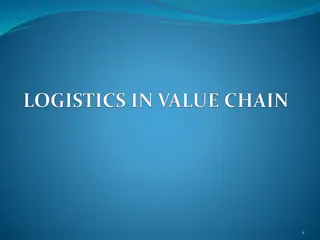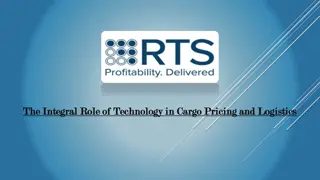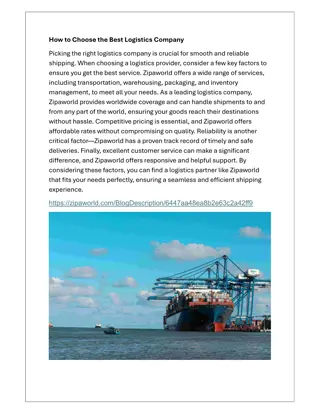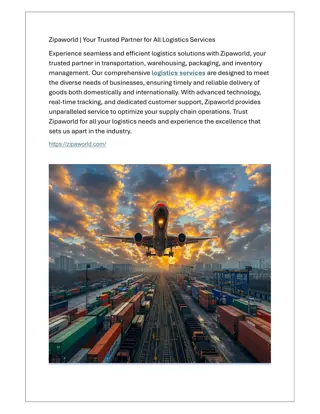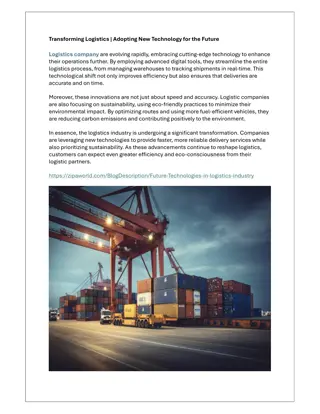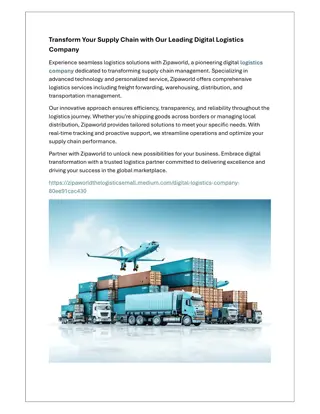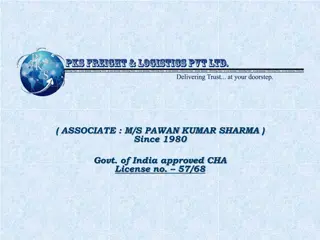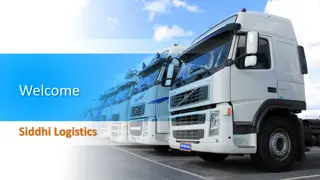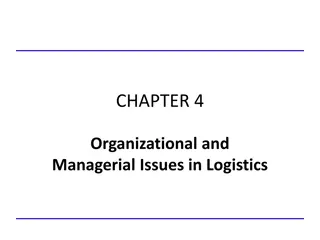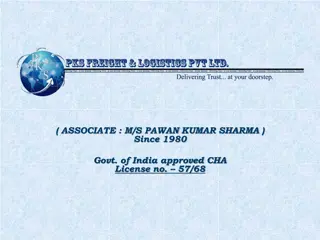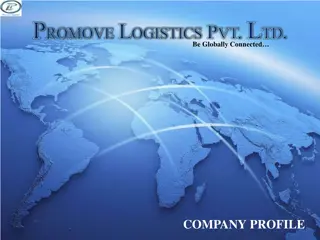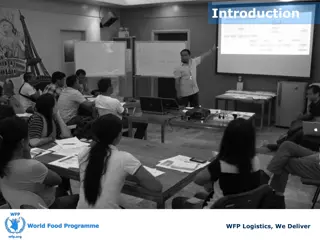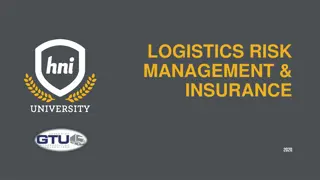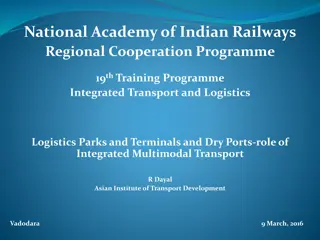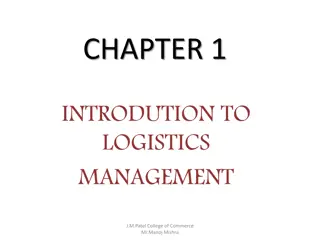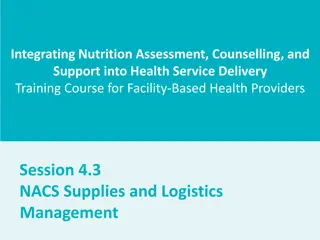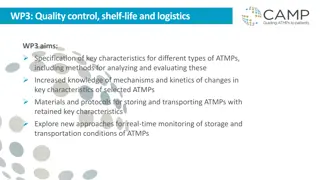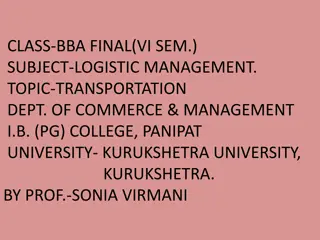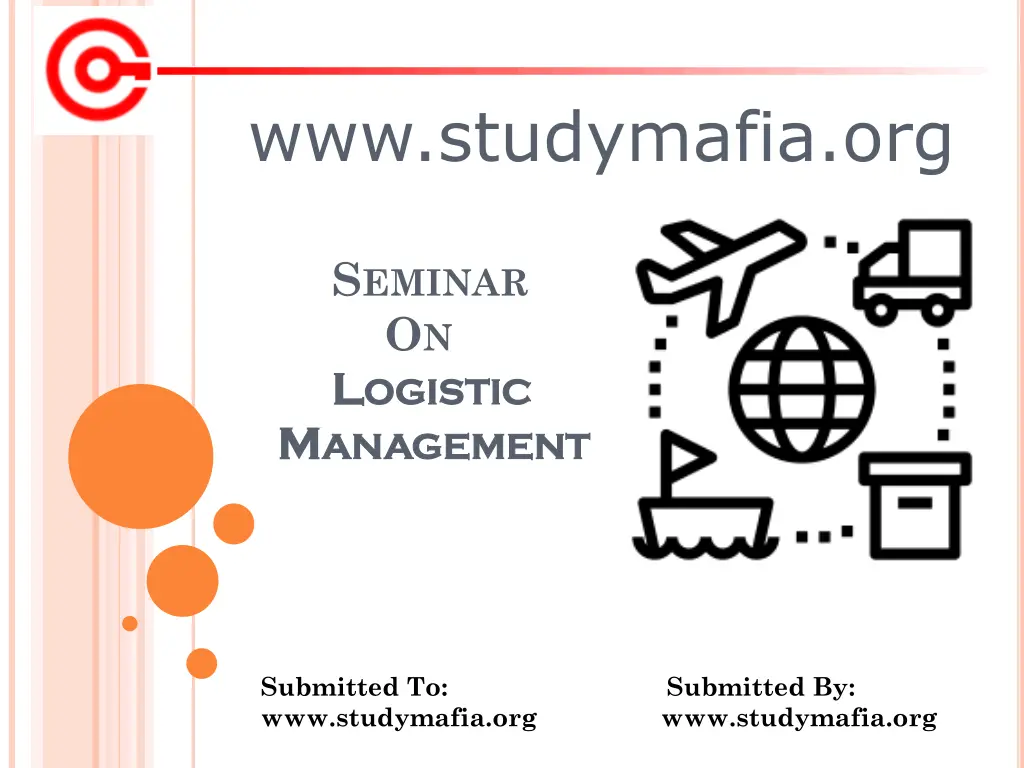
Understanding Logistics Management and Its Impact on Business Efficiency
Explore the world of logistics management, from its definition and main fields to the activities involved and types of logistics management. Understand the objectives of logistics and why it has gained importance in today's business landscape. Discover the advantages, disadvantages, and the evolving role of logistics in modern supply chains.
Download Presentation

Please find below an Image/Link to download the presentation.
The content on the website is provided AS IS for your information and personal use only. It may not be sold, licensed, or shared on other websites without obtaining consent from the author. If you encounter any issues during the download, it is possible that the publisher has removed the file from their server.
You are allowed to download the files provided on this website for personal or commercial use, subject to the condition that they are used lawfully. All files are the property of their respective owners.
The content on the website is provided AS IS for your information and personal use only. It may not be sold, licensed, or shared on other websites without obtaining consent from the author.
E N D
Presentation Transcript
www.studymafia.org SEMINAR ON L LOGISTIC OGISTIC M MANAGEMENT ANAGEMENT Submitted To: Submitted By: www.studymafia.org www.studymafia.org
CONTENT What is logistics & logistics management? Main fields within logistics Activities involved in logistics management Types of logistics Objectives of logistics Logistics has gained importance Advantages Disadvantages Conclusion
WHATISLOGISTICS & LOGISTICS MANAGEMENT? Logistics(CSCMP definition) The planning, execution, and control of the movement / placement of goods and / or people, and the related supporting activities, all within a system designed to achieve specific objectives. Logistics Management "Logistics management is that part of supply chain management that plans, implements, and controls the efficient, effective forward and reverse flow and storage of goods, services and related information between the point of origin and the point of consumption in order to meet customers' requirements
MAINFIELDSWITHINLOGISTICS Procurement Logistics Production Logistics Distribution Logistics Disposal Logistics
ACTIVITIES INVOLVED IN LOGISTICS MANAGEMENT Order processing Inventory management Material planning Warehousing Transportation.
TYPES OF LOGISTICS MANAGEMENT 1. Supply Management and Logistics 2. Distribution and Material Movement 3. Production Logistics and Management 4. Reverse Logistics and Product Return
OBJECTIVES OF LOGISTICS OPERATING OBJECTIVE: Rapid response Minimum variance Quality
LOGISTICSHASGAINED IMPORTANCE Raise in transportation cost. Production efficiency is reaching a peak Fundamental change in inventory philosophy Product line proliferated Computer technology Reduction in economic regulation
ADVANTAGESOFLOGISTIC A better use of the distribution network Costs reduction Transportation and express delivery Information technology
DISADVANTAGESOFTHE LOGISTICS Coordination Multinationals and large companies Cost of transport Legality
CONCLUSION If you wish to trump over your competitors, you should adapt the latest technology and innovative approach. The aim of effective logistics management is to improve the efficiency of the operations, ensuring customer satisfaction, and increase productivity.
REFERENCES www.google.com www.wikipedia.com www.studymafia.org

